
Culture
15:44, 03-Oct-2017
New version of ‘Four Great Inventions’ gains attention on National Day holiday
CGTN
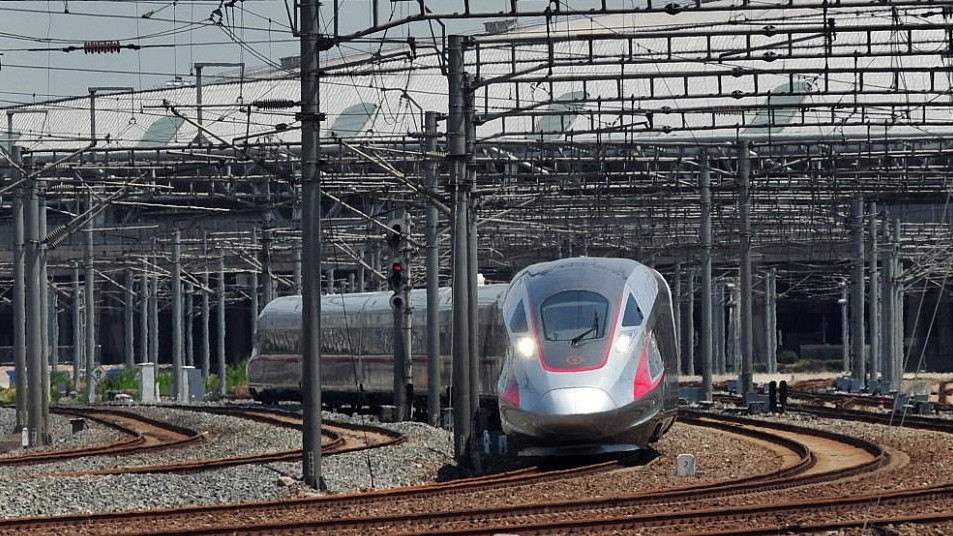
The new version of China's “Four Great Inventions” gained public attention during the National Day holiday, after a six-part documentary, “Amazing China”, hit Chinese TV screens ahead of the holiday, hailing the country’s development achievements during the past 68 years.
The “Four Great Inventions” of ancient China are widely known to be the compass, gunpowder, papermaking and printing, which had once significantly boosted the world’s progress of civilization.
In recent years, the country has been gaining momentum in developing and creating science and technology, and from this, several new inventions have emerged, attracting global attention again. The so-called new “Four Great Inventions” were decided by youths from 20 countries along the ancient land and maritime Silk Roads, as part of the “Belt and Road” initiative.
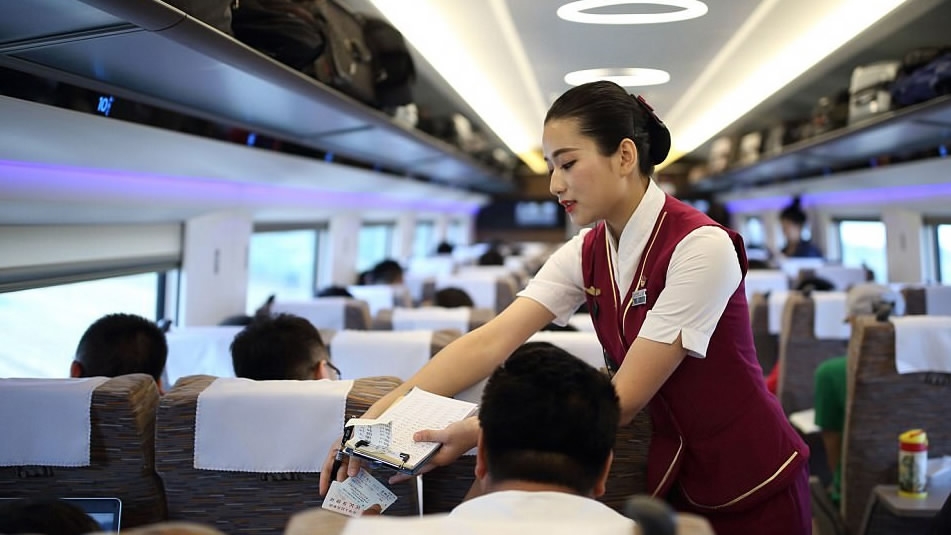
Staff checks ticket on Fuxing bullet train. /VCG Photo
Staff checks ticket on Fuxing bullet train. /VCG Photo
The survey launched by the Silk Road Research Institute of Beijing Foreign Studies University (BFSU) finally decided on the Chinese high-speed railway, mobile payments, online shopping and sharing bikes as the new inventions.
High-speed railway: New calling card
The Chinese high-speed railway, which has become a new calling card for China in recent years, was on top of the list. Though originally invented by the Japanese, China’s rapidly expanding high-speed railway networks have recently impressed the world.
By the end of 2016, China’s high-speed railway has exceeded 22,000 kilometers, accounting for 60 percent of the world’s overall high-speed railway.
On September 25 this year, just ahead of the National Day holiday, China launched its self-developed bullet train: “Fuxing”, which boasts a top speed of 400 km/h. The trains’ arrival has shortened the travel time between Shanghai and Beijing by nearly two hours.
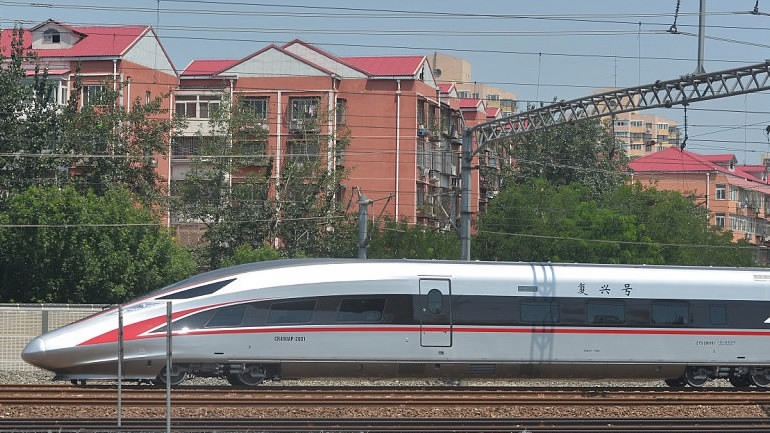
Fuxing bullet train bound for Shanghai from Beijing. /VCG Photo
Fuxing bullet train bound for Shanghai from Beijing. /VCG Photo
For the first time, the newly launched trains will operate during the eight-day holiday - known as the "travelling peak" - this week, and “Fuxing” bullet trains have become the first choice for many tourists.
China has also been expanding its high-speed railway network to link its domestic lines with that of its neighboring countries. High-speed rails have either been under construction in Indonesia, Thailand and Russia, or deals have been made for development to begin in the future.
Mobile payment: New lifestyle
In the past few years, wallet-free outings have become integral to a new lifestyle in China, thanks to the fast development of mobile payment. China’s tech giants Alibaba and Tencent launched their mobile payment applications, Alipay and WeChat, several years ago, changing the Chinese way of life.
Nowadays in China, almost all the daily payments can be made through the two applications: hailing a taxi, paying for utilities, charging cellphone tariffs, even something as simple as buying a bottle of water from the store.
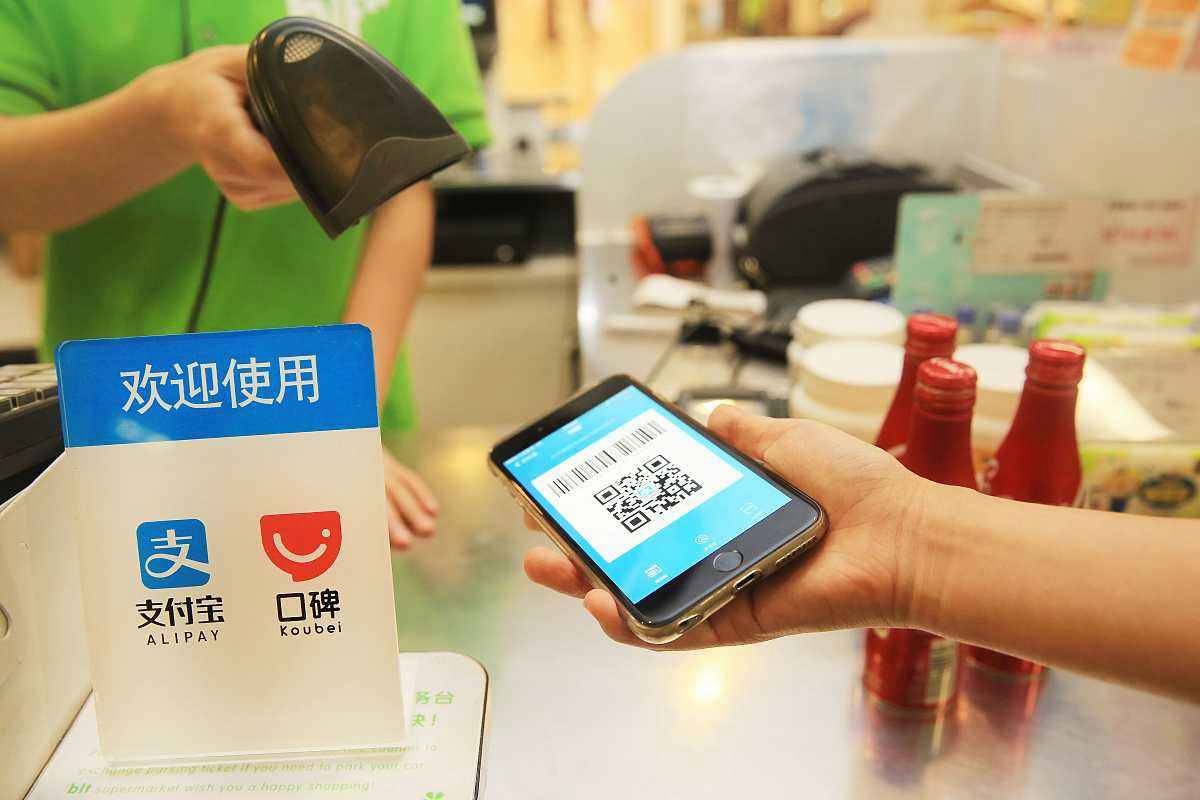
Alipay used for payment. /Photo via Baidu
Alipay used for payment. /Photo via Baidu
According to the data from iResearch, a Chinese market survey agency, the trading volume made through mobile payments in 2016 reached nine trillion US dollars, about 80 times of the US market.
Alipay and WeChat Wallet have both been expanding their overseas market, and insiders expect that by exporting the technology, they have also been exporting this new way of life.
Sharing bikes: New way of travelling
Sharing bikes were the third on the list of the new “Four Great Inventions”. Mobile and ofo, two major bike-sharing companies in China, have changed Chinese people’s way of traveling within their cities.
The orange and yellow bikes can be seen almost everywhere in China, from metropolises to the countryside. The bikes can be used by scanning the QR code with a mobile phone and be parked near on the sidwalk close to one’s destination.
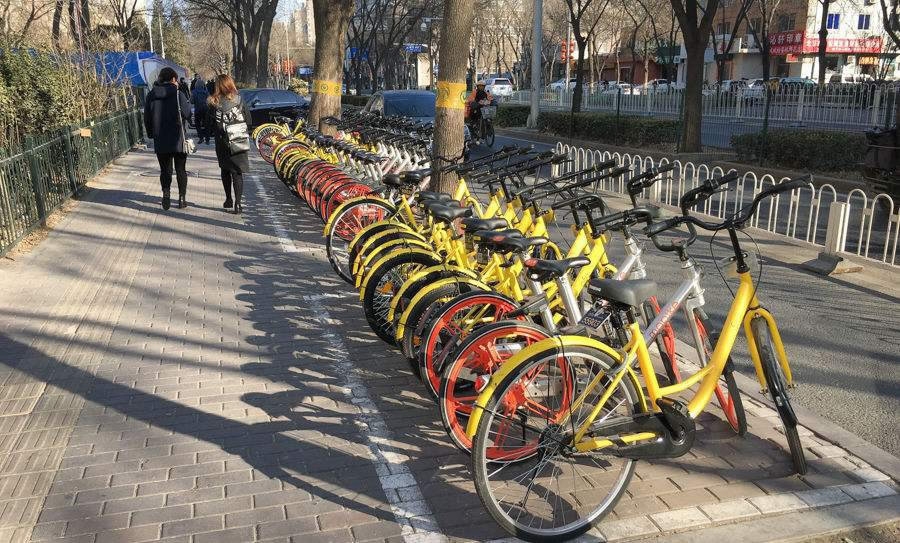
Sharing bikes parked by street in Beijing. /VCG Photo
Sharing bikes parked by street in Beijing. /VCG Photo
The bike-sharing industry is supported by cutting-edge technologies such as GPS systems, mobile payments and big data, and it has greatly boosted the sharing economy in China since its debut.
According to the China Network, ofo has now entered over 180 cities in 13 countries, and Mobile has also expanded to seven more countries as of September 20.
Online shopping: New retailing
Online shopping, which was hailed as the fourth great invention of this age, has recently been ousted by the emerging concept of “new retailing”.
Jack Ma, founder of China’s largest online shopping platform Taobao.com, introduced the concept of new retailing to the Chinese market in 2016, and Alibaba Group soon became a forerunner in new retailing.

Photo via 163.com
Photo via 163.com
By combining the online services and offline stores, Ma and his Alibaba Group have been gradually exploring the boundaries available with new retailing.
In August this year, Alibaba’s market value exceeded 400 billion US dollars, making it the first Asian listed company to reach that level and become one of the world’s retail giants. The company’s CFO Maggie Wu said that new retailing has contributed greatly to its 56 percent year-on-year turnover growth.
And the evolution has just begun, not only for new retailing - or the new “Four Great Inventions”, but for the new lifestyle and ideas they brought to the Chinese people and to the world.
5km

SITEMAP
Copyright © 2018 CGTN. Beijing ICP prepared NO.16065310-3
Copyright © 2018 CGTN. Beijing ICP prepared NO.16065310-3